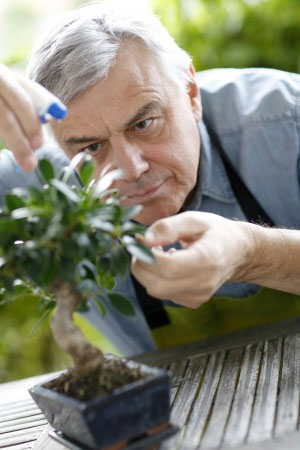
Do you make like a bird and fly south every winter? If so, your departure won’t exactly be carefree. After all, there are many considerations to cover before you head out of town. Keeping track of all of these things can be overwhelming, which is why we’ve prepared this handy checklist of snowbird home tips for seniors looking to protect their nests while they’re out of town.
1. Turn off your water.
A burst pipe can fill your vacant home with thousands of gallons of water causing serious — and expensive — damage in the process. According to esurance, water damage caused by burst pipes and other plumbing issues the second-most common insurance claim in the U.S. The average residential claim is a staggering $10,000 — and that's assuming you're even covered.
Shutting off the main water valve and draining your pipes is a simple way to keep your plumbing system safe. If you’re not up to this task, hire a plumber to handle it for you.
On a related note, this also a good time to turn down or shut off your water heater by either lowering the temperature or turning off the breaker that controls it. After all, who will be around to need hot water?
2. Have your HVAC system serviced.
Routine maintenance on your heating system keeps it in optimal condition. Attending to this detail before you leave means that you’ll return to a properly functioning system. Additionally, changing the filter on your furnace improves efficiency so you can look forward to lower heating bills while you’re gone.
3. Suspend any unnecessary utilities.
While you’ll need certain utilities, such as power and heat, to continue during your absence, others can be stopped while you’re gone. Many cable and internet providers offer vacation status options, which allow account owners to temporarily suspend their services for the winter with no fees or penalties.
 4. Touch base with your insurance agency.
4. Touch base with your insurance agency.
Depending on your insurance policy, spending months at a time away from your primary residence may impact your coverage.
"This is because vacant or unoccupied houses are at greater risk for vandalism, theft, weather-related perils and fire, but your policy premium is based on a lower-risk scenario where your property is occupied," explains Insurance.com.
Be sure to check in with your insurance agency to see if you need a vacant home policy, freeze alarm or another arrangement in place to ensure ongoing coverage for your unoccupied home.
5. Unplug appliances.
You won’t be using your television, computer, coffee maker, microwave or clothes dryer while you’re out of town. But keeping them plugged in even when they're in "sleep" or "standby" modes means they’re still using electricity to the tune of between $165 and $440 annually for the average American household. Lower your electric bill — and your eco-footprint — by unplugging these before you leave town.
An added benefit of vanquishing these "energy vampires" while you're away: If a lightning strike or power surge occurs, unplugging these appliances can prevent them from damage.
6. Open up and air out.
There’s nothing worse than coming back from a vacation only to discover that your dishwasher and washing machine have grown mold while you were away. Avoid this unfortunate homecoming by opening appliance doors to keep them dry and mold-free.
The same applies to interior doors. Closed doors may look tidier, but they prevent the circulation of air, which can lead to must. Leave all interior doors open — including cupboards and closets — to keep air circulating.
7. Have a plan for your newspapers and mail.
Piles of unread newspapers and an overflowing mailbox are easy marks for criminals looking for vacant homes. Avoid setting yourself up for a break-in while keeping up with important mail by suspending your paper delivery and arranging for mail forwarding.
8. Inform your financial institutions.
Anyone who’s ever had their credit card flagged for suspicious activity in another state knows this can be an embarrassing inconvenience. Avoid the hassle and headache by adding a temporary mailing address to your account.
9. Make sure your medication needs are covered.
Can you get your prescriptions filled out of state? Ask questions about medications, prescriptions, and medical insurance in advance to ensure that you’ll be able to easily refill your medications from your winter destination.
 10. Don’t forget about your houseplants.
10. Don’t forget about your houseplants.
Houseplants require regular attention. If you can’t take your plants with you, ask a responsible friend or family member to stop in and water them regularly. Let your neighbors know if you're expecting someone to be in and out of your home while you're not there.
11. Have a plan for snow and ice control.
While the snow and ice may not be a problem for you in your tropical destination, people back home may not be so lucky. Homeowners are responsible for limiting dangers on their property, including clearing pathways, sidewalks, parking spaces, your driveway, and entrances of snow and ice.
In fact, “A regional survey of county and municipal ordinances conducted by the Salt Institute found that 83 percent have written policies directing property owners to remove accumulated snow and ice “within 24 hours of the end of the snowstorm,” reports the Columbus Dispatch.
Avoid fines — and even the chance of jail time! — by proactively arranging for snow and ice removal.
Worrying about these tasks is the last thing many older adults want to think about while planning a winter getaway. A move to a retirement community like Deupree House can help savvy snowbirds minimize stress and maximize peace of mind in their golden years.












